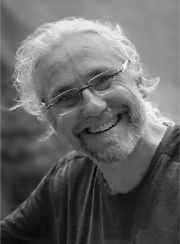I am full professor at the University of Barcelona (UB) and a researcher in the fields of evolutionary, population and environmental biology. I developed my PhD in a team led by Profs. Xavier Ruiz and Lluís Jover, on the interactions between two gull species. In 1996 I moved to a team led by Peter Becker in Wilhelmshaven (Germany) to investigate pairing systems. Then, in 1999, I moved to a team led by John P. Croxall at the British Antarctic Survey (UK) to investigate the movements and sexual segregation of seabirds using PTTs and GLSs devices. In 2000, I joined the UB as a “Ramón y Cajal” researcher. Since then I have formed my own team, mainly focused on seabird movement ecology, that is currently composed of 2 postdocs, 9 PhD students and a number of MSc and undergrad students. In 2008 I became professor at the Departament de Biología Evolutiva, Ecologia i Ciències Ambientals as well as the Institut de Recerca de la Biodiversitat (IRBio). In 2018 I became a full professor.

Jacob Gonzalez-Solis Bou
ICREA Academia 2018
Universitat de Barcelona · Life & Medical Sciences

Research interests
We focus on movement ecology, symbiotic interactions and marine environmental chemistry, using seabirds as a main study model. We are concerned with biodiversity loss and all our research intends to contribute to the field of conservation biology. We develop observational and experimental field studies integrating multidisciplinary approaches and tools, such as molecular, stable isotope, physiological, microbiological and contamination analyses. We instrument seabirds with different devices, such as GPSs, GLSs and accelerometers, to track their foraging and migratory movements and behaviour. We work in Macaronesic archipelagos, particularly Cape Verde and Canary Islands, as well as in some Antarctic and subantarctic localities. Our tracking data contribute to assess mIBAs and MPAs in the Atlantic. Our activities also include building capacity in developing countries as well as increasing public awareness on anthropogenic threats to seabirds and the marine environment
Keywords
movement ecology, symbiotic interactions, marine environmental chemistry, conservation biology, seabird ecology